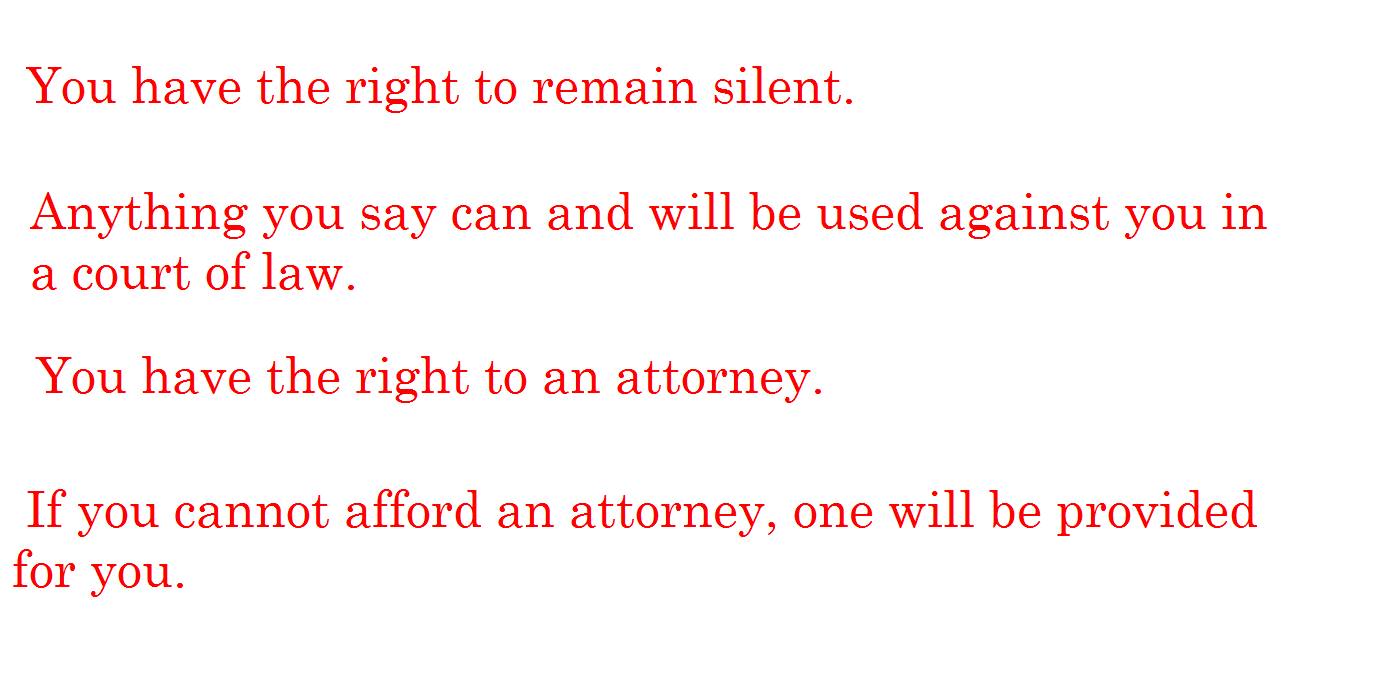legal
word of the day: MIRANDA RIGHTS
ENG:
the
specific rights that any suspect of a crime must be informed of before an interrogation
You have the right to remain silent. Anything you say can and will
be used against you in a court of law. You have the right to an attorney. If
you cannot afford an attorney, one will be provided for you. Do you understand
the rights I have just read to you?
POL:
prawa
Mirandy, prawa aresztowanego do zachowania milczenia, do obecności adwokata podczas
przesłuchania oraz do adwokata z urzędu
Masz prawo do zachowania milczenia. Wszystko, co od tej
pory powiesz, może zostać użyte w sądzie przeciwko tobie. Masz prawo do adwokata
i do jego obecności podczas przesłuchania. Jeśli nie stać cię na adwokata,
przysługuje ci obrońca z urzędu. Czy rozumiesz swoje prawa, które ci
przedstawiłem?"
also
called:
MIRANDA WARNING
MIRANDA RULE
ORIGIN:
case:
Miranda v. Arizona (1966)
circumstances : During police interrogation Ernesto Miranda,
who was accused of robbery, kidnapping, and rape, confessed to the crimes. The
police had not informed him of his rights protected by the Fifth and Sixth
Amendments: the right to refuse to be a witness against himself (self-incrimination clause) (5th) and
the right to an attorney (6th).
events:
1.
1st trial: the confession was entered as evidence and Miranda was convicted of rape and kidnapping.
2.
Appeal to the Arizona Supreme Court:
the verdict was upheld (found to be
correct).
3.
Petition for a writ of certiorari submitted:
accepted
4.
2nd trial: The U.S. Supreme Court found
in favour of Miranda and ruled that criminal suspects must be informed of
their right against self-incrimination and their right to consult with an
attorney before being questioned by
police.
5.
Miranda was retried and convicted
(based) not on his confession but on testimony
given by his estranged wife.
TO CONFESS TO (A CRIME) – przyznać się do (to
voluntarily state that one is guilty of a criminal offense)
SELF-INCRIMINATION – składanie zeznań obciążających samego siebie (being
forced or coerced to testify against oneself)
TO BE CONVICTED OF – zostać uznanym winnym (to be
found guilty of a crime and sentenced by a court)
AN APPEAL – apelacja (asking a higher court to
reverse the decision of a trial court after final judgment or other legal
ruling)
TO UPHOLD (A VERDICT) – podtrzymać, utrzymać w mocy (to say that
something is correct)
A PETITION – wniosek ( a formal request)
A WRIT OF CERTIORARI – żądanie
przekazania akt sprawy z sądu niższego do wyższej instancji (celem
skontrolowania zasadności rozstrzygnięcia lub celem zapoznania się z materiałem
sprawy (a
writ or order by which a higher court reviews a case tried in a lower court.)
TO FIND IN FAVOUR OF – orzekać na korzyść ( to
decide that someone wins a case)
TO QUESTION (A SUSPECT) – przesłuchiwać (to
interrogate)
TO RETRY – ponownie sądzić (to put somebody on trial again)
TESTIMONY – zeznanie (a form of evidence that is
obtained from a witness who makes a solemn statement or declaration of fact)
ESTRANGED – pozostający w separacji (describes
a husband or wife who is not now living with the person they are married to)


No comments:
Post a Comment